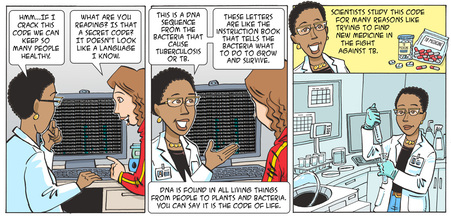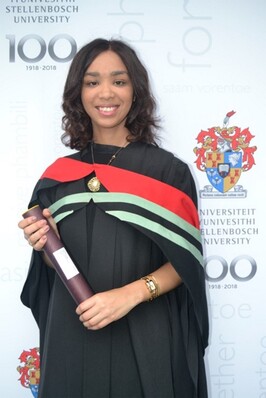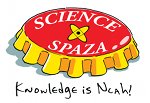About the Division of Molecular Biology and Human Genetics
The Division of Molecular Biology and Human Genetics (MBHG) at Stellenbosch University (SU) is a state-of-the-art research facility focusing on the study of tuberculosis (TB). Tuberculosis is an airborne disease that infects the lungs and is spread when a person who is sick with TB coughs, sneezes, sings or talks. Each year, about 10 million people become infected with TB and over 1 million people die because of the disease.
Tuberculosis is a curable disease, which can be beaten if you go to the doctor and get your TB treatment. This treatment involves taking medication for 6 months – it is very important that you do not skip taking your medication or you will not be cured and can develop a stronger form of TB, which can’t be treated (or is resistant to) the normal medication. This is known as antibiotic/drug resistant TB, which requires more TB drugs for a much longer in order to be cured. Scientists from MBHG study TB disease in both humans and animals to increase understanding of the disease, as well as create new tools and medicines that can be used to fight TB. Some of the things they look at are: how the body works to fight off the infection; finding better and faster ways to test for TB in humans and animals; discovering and developing new TB medicine to improve TB treatment and stop/prevent drug resistance (resistance to the normal TB medicine used to cure patients); and studying how the TB is spread to improve TB control and prevention methods. These scientists come from a variety of backgrounds. Some studied science degrees at university, focusing on subjects like microbiology, biochemistry, physiology or chemistry. Others studied engineering and wanted to use their skills in medicine, so they teamed up with clinical scientists to create new technologies for healthcare. Interestingly, some of MBHG’s scientists are actually medical doctors and veterinarians (animal doctors), who wanted to learn more about how research can help improve medical care in South Africa. Check out these interviews with researchers from MBHG who are currently working on different projects related to TB.

Interview with Miss Loren Rockman, a Masters candidate at SU MBHG
What is your research focus on?
My research focuses on finding better ways to diagnose Tuberculosis (TB) in humans. The most common methods use genetics to check whether the bacteria that causes TB is present in the lungs. It does this by looking for the bacteria’s DNA in sputum. Sputum is a mixture of saliva and mucous that is coughed up from the respiratory tract. If the bacteria’s DNA is found in the persons sputum - it is a positive result indicating they have TB. In addition to simply finding the bacteria’s DNA, this test, called Ultra, uses genetic sequencing to determine whether the person has drug-susceptible or drug resistant TB. This is very important when deciding which medicine the person needs to take to be cured. Some people, especially younger children, have trouble coughing up sputum. This is a problem because without this sample, the clinic cannot perform the right tests to make sure they give the correct treatment. My research is looking at ways to use different samples, like a tongue swab or oral wash, that are easier to collect to test for TB. This will help put these people on the right treatment faster so that they are cured quicker and do not spread the disease to others.
Why did you choose your field of study – what or who inspired you?
In January 2017, I was diagnosed with TB. Fortunately for me it was drug susceptible, and I was cured after taking my TB medicine for 6 months. This was a life changing experience for me. I had to adapt to a different lifestyle and put my health first at all times. I travelled to the university via public transport at the time and I remember the one thing that kept me going was my mother by my side every day helping me carry my books (as I was not strong enough to do this by myself ) and assuring me that this too shall pass and that I needed to keep the end goal in mind. It taught me to be patient with myself and to always remain positive. It also gives me great honour to say that I am a TB survivor. Having battled TB helps me relate to what other TB patients are going through and is the source of my passion for which I believe has brought me to where I am today.
What advice do you have for young people who are considering a career in STEM?
It is important to be 100% certain that this is the career you want for yourself and that you are passionate about it. A career in STEM should come from the heart as you will always put in your best. Sometimes there will be failures, but failures are not setbacks, they are simply steppingstones to a second opportunity where you can improve on what you have done the first time. The challenges will always be there, but if your heart is in the right place, you will always find a reason to carry on.

This content was created in partnership with Stellenbosch University.

